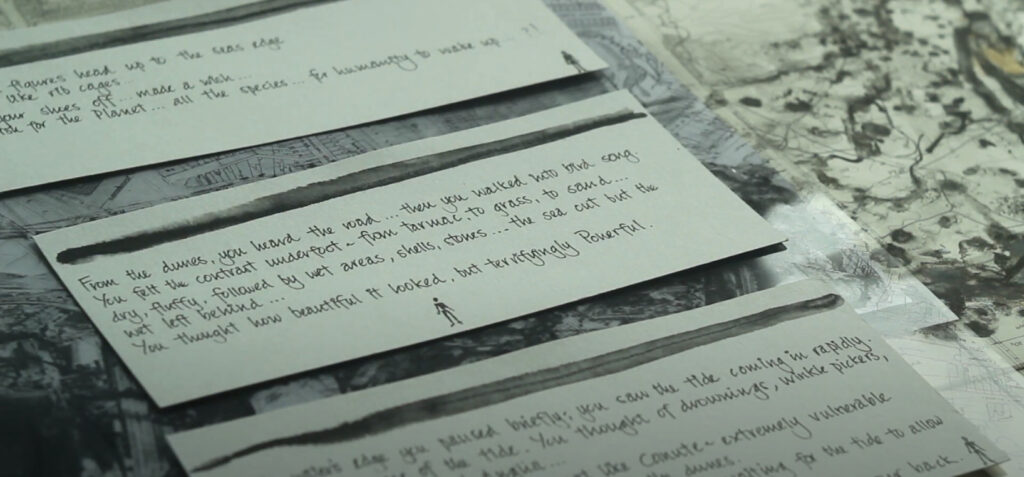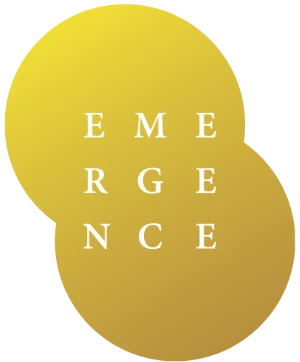‘Seeing’ and ‘Feeling’ Future Climate Through the Eyes of Climate Experts and Artists
“No one talks about climate (or ecological) crises in my department – not in work time, not at work meetings. Let alone their feelings. It’s an extraordinary taboo. I am always thinking about it, yet never feel ‘allowed’ to mention it.”
This project is radical and transformative in directly challenging this taboo. Ignoring emotion in climate science impedes communication with a profound impact on our ability to act in the face of climate change; acknowledging it changes everything.
Scientists are traditionally expected to view the world through the lens of the scientific method with its requirements for objectivity, repeatability, and logic; we communicate via a precise language of data, graphs, and models. Most also undertake public engagement interpreting our knowledge for a general audience and policymakers. And yet, emissions continue to rise.
To address the climate emergency we must all, including scientists, fundamentally recast ourselves as agents of change.
It is clear a completely different approach and way of communicating within and beyond the scientific community is necessary to catalyse the systemic change we need.
A fundamental shift in dialogue, narrative and language is required across all aspects of science, society, and economy. We believe this can be catalysed by a new conversation where expert scientists and engineers step “outside of the box” of the scientific method and describe how they “feel” about climate change.
In this radical new process we become expert witnesses to one another’s deeply held emotions and thus communicate and connect at a visceral level. Emerging research highlights the value of stories, human connection, community and belonging in facilitating climate action.
What part do the artists play in the process?
The power of creativity and the imagination is central to Global Climate Lab. As part of Climate Lab, participants work with and meet artists working internationally on climate and related issues.
Climate Lab Artists act as catalysts, documenters, interrogators, disrupters of the old and harbingers of new stories of change.
The guest artists participate alongside the scientists and are invited to offer ‘creative responses’ in their chosen medium, whether using writing, video, sound installation, performance, or visual art. These responses are presented and then refined throughout the process, creating a future living legacy which captures and represents the output of the process.
At the end of Climate Lab, each artist’s creative response is shareable with a wider public with the aim of widening the climate conversation and accelerating processes of change.
Guest Artists
Carolina Caycedo is a multidisciplinary artist known for her performances, videos, artist’s books, sculptures, and installations that examine environmental and social issues.
Christine Kettaneh; Lebanese artist based in Beirut. She investigates the boundaries of language and systems in research-based work that are simultaneously sculptural and performative.
Marega Palser; Performance artist living in Newport, South Wales, UK. Works at the confluence of live art, music, film, performance, site specific, grassroots and ritual.
Creative Responses

“I found a connection between the process of science and the process of art. The process itself has been artistic.”
– Participant
Who are the Designers/Facilitators?

Global Climate Lab is designed and facilitated by Fern Smith and Marega Palser of Emergence, a network of artists and innovators working to create ‘space for transformation’ and ‘conditions for dialogue’ working with the core issues of our lives and times.
Emergence has designed and facilitated spaces for the Welsh Government, Natural Resources Wales, Arts Council of Wales and Centre for Alternative Technology.
“A wise, caring space.”
“Excellent facilitation, wonderful group of people. Thank you”
“I’ve been humbled by the energy, commitment and passion people brought to this process.”
“So powerful.”